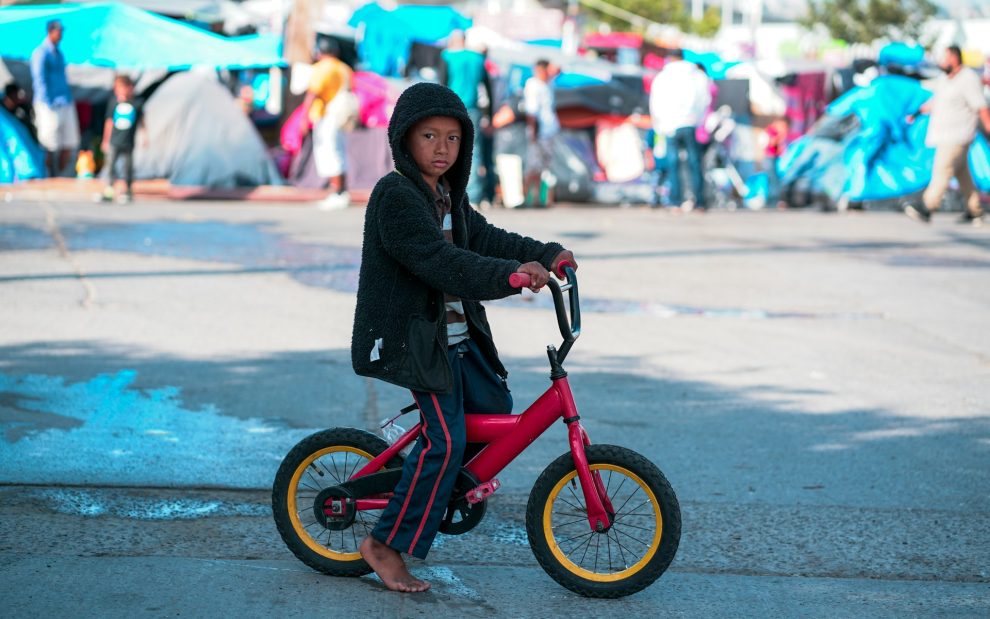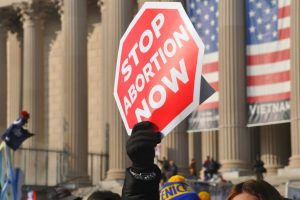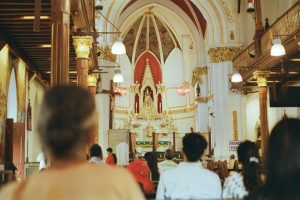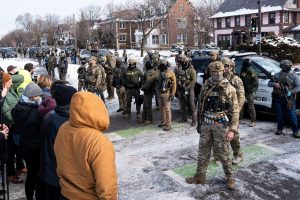After graduating from a Jesuit University, I took the Jesuits’ call to live out the gospel to heart and signed up for a year with the Jesuit Volunteer Corps. I was placed with Catholic Charities Refugee Services in Nashville as an employment specialist for newly arrived refugees. I was doing social work fresh out of college with no social work background. It was one of the most difficult and transformational experiences of my life.
I vividly remember one morning when I pulled into the parking lot of the apartment building where the refugees were living—and saw Mang, a refugee from Burma who spoke English, standing there with a bare wire.
“We’re going to use this to jump my car,” he said.
This was the refugees’ first day of work at the Opryland Hotel, and I didn’t want to leave anything to chance; I drove them to work in the company minivan. They had a successful first day on the job, and eventually, they formed a lasting partnership with the hotel. A few years later, a former colleague told me that when downtown Nashville flooded, including the hotel, the refugees were the first group of employees called back to work. Meanwhile, fish from the restaurant’s tanks were still swimming free inside the hotel—including piranhas.
The refugees didn’t normally have to swim with piranhas, but each day gave me new opportunities to realize these were some of the most resilient people I had ever met. They were escaping war and persecution, coming from all over the world to restart their lives in the United States, often with not much more than the clothes on their backs.
Few other people would willingly work in such hazardous conditions as the ones at the Opryland Hotel after the flood or amid the everyday dangers at meat-processing plants. Before COVID-19, working in meat-processing plants was already a dangerous job where workers could lose fingers or even limbs, but the pandemic brought extra hazards for these workers. In the early days of the pandemic, these “essential workers” were some of the first to get sick and die, since their jobs placed them in close quarters with one another, without much ventilation.
Given how much migrants and refugees contribute to our nation’s economy, I’m heartbroken to hear politicians, pundits, and everyday Americans make threats and spread disinformation or private information about people and organizations of faith that are doing important work with migrants and refugees. Religion News Service recently published an article about how everyday Catholic Charities employees, some not even working with migrants and refugees, are receiving threats and being doxed, endangering their own lives and that of their families. Just last year, House Republicans tried to pass a bill that would strip funding from Catholic Charities and other nonprofits that work with migrants and refugees. Some people seem intent on demonizing refugees who are escaping life-threatening situations that many of us would not even be able to imagine. And many of the people doing this damage are self-proclaimed Catholics.
Perhaps the biggest offender of anti-immigrant fervor is Texas governor (and Catholic) Greg Abbott. From employing the Texas National Guard at the border and vowing to continue to build “the wall,” to bussing migrants to big cities across the country, to installing razor wire in the Rio Grande River, to having his Attorney General Ken Paxton sue Annunciation House, a Catholic nonprofit that offers aid to migrants, few politicians have done more harm to migrants and our country’s broken immigration system. And while U.S. bishops are quick to use their megaphones on issues such as abortion, few of them have spoken out against migrant bussing or razor wire, nor have they threatened to deny Governor Abbott communion. While I don’t want anyone to be denied communion because of their political beliefs, the church should offer better guidance to Abbott and others like him who threaten refugees’ well-being.
The American refugee program was established after World War II, due to the collective lack of action to help Jews escape the Holocaust. Historically, the program has usually been seen as a noble endeavor, and politicians of all stripes have supported it. This was the case with the “Vietnamese boat people” in the late twentieth century, when many Vietnamese sought refuge in the United States and other developed nations after fleeing violence and oppression in their nation. Today, the United States and other countries, in coordination with the United Nations, vet individuals from war-torn countries and help them to resettle in a new country. The process often takes years.
But in the past 15 years, the refugee resettlement program has become increasingly politicized as our nation becomes more polarized. A program that politicians on both sides of the aisle once saw as important is now seen, like many other issues, as a test of where a person stands politically, rather than as a resource for saving lives. For people of faith, the refugee program helps fulfill our biblical mandate to “welcome the stranger,” and yet many Christians seem to have forgotten that.
Many refugees have waited years to come to the United States. Others, who had to leave immediate family members behind, have had to wait even longer for their loved ones to join them. Some refugee children and young adults have spent their entire lives in refugee camps, never setting foot in their home country. Most refugees fled war or internal strife in their homelands; some, like those from Iraq and Afghanistan, put their lives in danger by working with the United States military. Others were simply born into the “wrong” ethnic group or religion, or at the “wrong” place and time. All are grateful to escape those situations, and they often eagerly take jobs in the United States that no one else would want. They’re required to take the first job offered to them, and the options are often limited due to language barriers.
When I worked at Catholic Charities, many of my colleagues in the “buckle of the Bible belt” were former refugees themselves, as well as Tennesseans of all backgrounds and political stripes. I’m not sure that all my colleagues saw our role as living out the gospel, but I can’t imagine any of them receiving death threats merely for doing their jobs.
Pope Francis has done his part to highlight the importance of resettling refugees. He welcomed Syrian refugee families to the Vatican. One of his first official visits was to the island of Lampedusa, where migrants often brave the Mediterranean Sea to seek asylum in Europe.
In the United States, our southern border is overwhelmed with migrants seeking asylum. Here, as in Europe, asylum seekers must prove that they are fleeing a credible threat in order to be considered refugees. This is a different but equally long and arduous process as the process of refugee resettlement which comes later. However, both the law and our faith are clear: The right to seek asylum is protected under international law, and Pope Francis’ embrace of asylum seekers at Lampedusa shows each and every person of faith a living example of what Jesus meant when he told us to love one another.
There are signs of hope. The United States is on target to resettle 125,000 refugees this year, a number not seen in three decades. Hopefully, none of these human beings will have to swim with piranhas or try to start company vans with bare wires, and all will live happily and thrive here in their new home country. And as Catholics, may we all follow the example of Pope Francis—and Jesus—to welcome “everyone, everyone, everyone.”
Image: Unsplash/Barbara Zandoval













Add comment